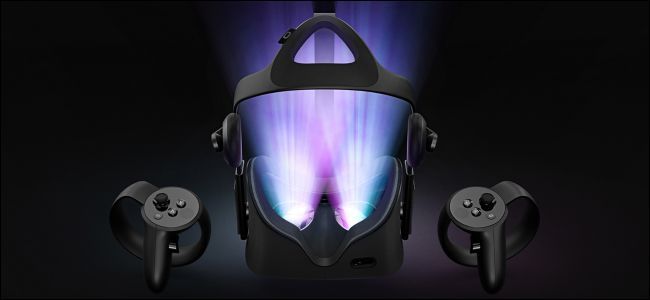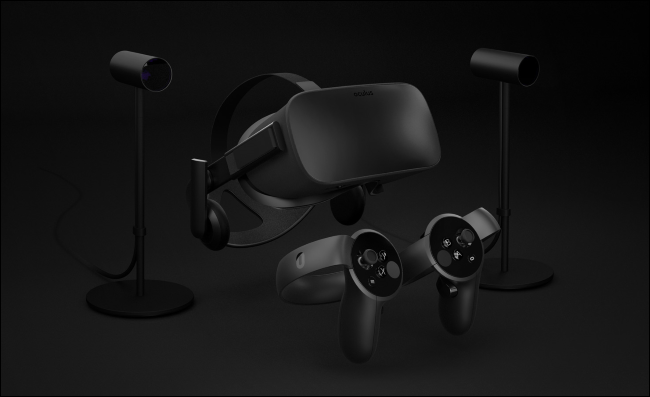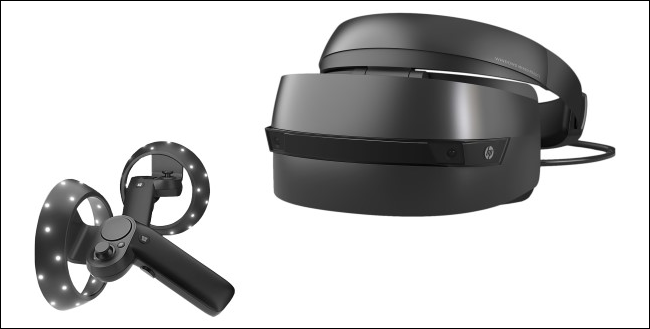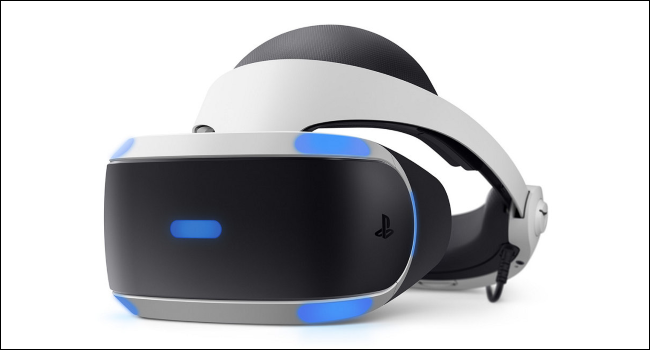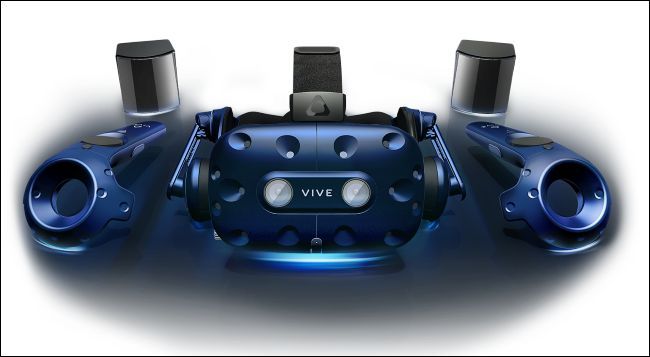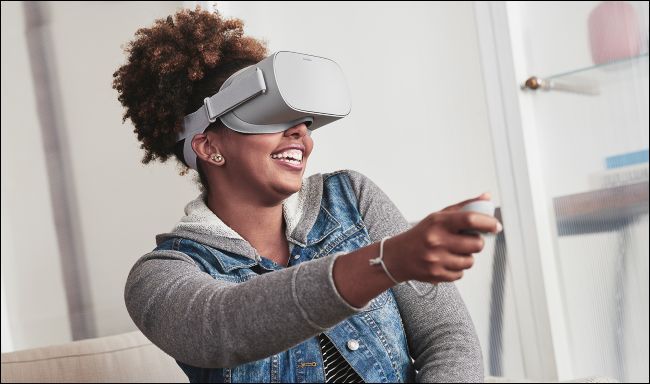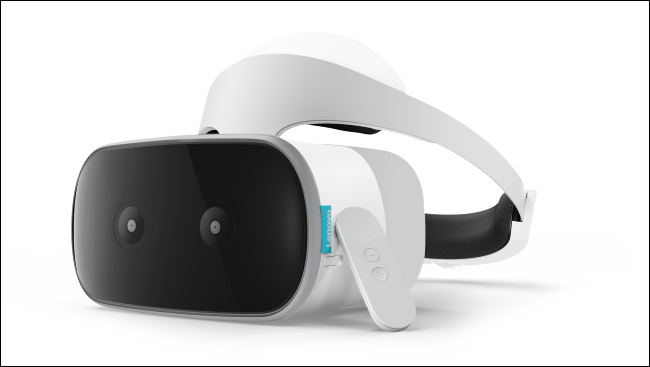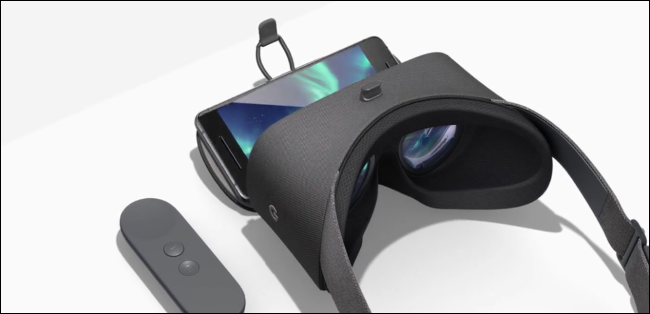Quick Links
In 2018, VR headsets are better and cheaper than they've ever been. They were overhyped and they haven't transformed the world, but they're really cool toys. So are they worth investing in yet?
What's the Point of VR Headsets?
Let's just cut right through the hype: Virtual Reality is not "the next big computing platform" that's on the cusp of taking over the world. You will not want to put on a VR headset and work at a virtual desktop any time soon, and they provide a worse experience for watching regular videos than a standard 1080p TV---outside of full VR videos, which only really come from one industry.
Instead, VR is simply a cool piece of tech. It's a fun toy.
It's amazing to put on a VR headset, move your head, and have the image move so instantaneously that it feels like you're looking around in the real world. You feel a real sense of presence. Virtual Reality games, which integrate hand motion controls better than Nintendo's beloved Wii and position tracking better than Microsoft's failed Kinect, can be a lot of fun. Grabbing a robot in Robo Recall and tearing off a robotic limb by moving your hands is unlike anything you can do on other platforms. Ducking and leaning to dodge slow-motion bullets in SUPERHOT VR is an amazing experience. Moving around to dodge enemy attacks in Space Pirate Trainer can be some fun exercise. And Valve's The Lab has a lot of cool, polished minigames, complete with a great little experience in which you encounter GLaDOS from Portal.
You'll notice that we're mostly just talking about PC gaming. That's what we think VR headsets really are in 2018: a fun piece of tech that's good for some PC games. It's amazing that these headsets work so well, and they're fun to play with. But don't buy VR thinking it's anything other than a toy right now. But, at the current price of $200 to $400, it's not that expensive for a cool gaming toy.
You Can Get a Good VR Headset for $200-$400
Virtual Reality headset prices have come way down. The original consumer version of the Oculus Rift was $599, and the touch controllers were an extra $199 when they were released. That's a total of $798. You can now get an Oculus Rift with touch controllers for $399, which is half the original price. Amazon sold this bundle for as cheap as $349 at the end of December, 2017.
Microsoft also makes their own "Mixed Reality" headsets, which can be used with SteamVR games (and even Oculus VR games, unofficially, with Revive.) They include touch controllers, too, and cost $399. We think the Rift is much more impressive at the same price. But Microsoft has sold bundles of a headset with touch controllers for as cheap as $199, and that's pretty compelling.
Want to play VR on a console instead? Sony's PlayStation VR now costs $349 in a bundle with hand-tracking PlayStation Move controllers and Skyrim VR. PlayStation VR bundles have been as low as $199 on sale in the past, too.
The HTC Vive hasn't fallen as much in price, but even it's gotten cheaper. Originally launched at $799, the HTC Vive is now $499. HTC has pursued the premium market, launching an HTC Vive Pro with higher-resolution panels starting at $1099. But HTC is the odd company out here. We used HTC's Vive Pro at CES 2018 and its high-resolution display was beautiful, but it's not three times better than a Rift.
A good VR headset, complete with hand-tracking controls, will now cost you $399 at most, and perhaps as low as $199. That's huge. At that price, it's a great toy to play with.
If you're playing on a PC, you'll need a solid graphics card---but, if you're interested in playing VR games, you're probably a gamer who would want decent graphics hardware anyway. The current state of cryptocurrency miners making graphics cards expensive does sting, but that affects all PC gamers.
$200 Standalone VR Headsets Are on the Way
Standard VR headsets must be connected to a PC via a cable. You'll need a PC with powerful enough graphics hardware to drive the headset, and you generally have to set up tracking stations to track the movement of your head and controllers. Most people just don't have the necessary PC hardware. The setup process isn't too bad, but it does take some time (and desk space).
PC-connected headsets will still give you the best experience. For example, you need a headset connected to a PC to use hand tracking. But standalone headsets are less expensive and more accessible to everyone.
That's why companies are now working harder on standalone headsets. Oculus is working on the Oculus Go, a standalone headset that will be released in "early 2018"---in other words, real soon now. It will cost just $199.
And by standalone, we mean it---you don't need to connect the Oculus Go to a PC and you don't even need a smartphone to use it. It's a complete device with all the necessary computing hardware built in and a simple controller. Sure, the graphics won't be as detailed as PC graphics, but an easy-to-use, self-contained VR headset at just $199 could be a compelling toy.
Other companies are working on similar things. Google's Daydream VR platform, built into many Android phones, now supports standalone headsets. Lenovo makes a self-contained "Mirage Solo" VR headset that will be $400. That's a high price compared to Oculus Go, so we wouldn't be surprised to see cheaper Daydream headsets soon.
We used Lenovo's headset at CES 2018 and thought it worked pretty well. When the price comes down on Daydream VR headsets, they'll be great buys.
It's Less Than $100 With a Recent Android Phone
If you have a high-end Android phone made in the last few years, you can try Google's Daydream View with your phone. For recent high-end Samsung phones, you can try the Gear VR headset, too. Each of these will cost you less than $100---if you have the required phone to power them.
Like standalone VR headsets, these aren't as powerful as PC-connected headsets. You won't get hand-tracking with these headsets, either. But they likely offer similar experiences to standalone headsets like the Oculus Go and are cheaper if you have a phone that supports them. (We haven't had a chance to play with an Oculus Go, as it hasn't been released yet.)
At the time we wrote this article, Google was selling the Daydream View for $49 and you could buy the latest Gear VR bundle from Amazon for about $89.
You Should Try a VR Headset Yourself
It's tough to describe just how good VR is to someone who's never tried it. Anecdotally, every person I've ever put a VR headset to has been more impressed by it than they thought they'd be. No, it's not perfect at all, and you can easily tell you're looking at a screen. But the near-instantaneous head movement tracking, position tracking, and lens system works very, very well. It's very impressive, and there is a sense of "presence" you feel while you wear the headset.
If you haven't tried VR and you're even a little interested in it, you owe it to yourself to give it a go. There's a good chance you can try one in a store near you. Best Buy has partnered with Oculus to provide live in-store demonstrations. Microsoft Stores may have Oculus Rift, Windows Mixed Reality, or HTC Vive demonstrations available, too. Electronics and gaming stores may also offer Sony Playstation VR, Samsung Gear VR, or Google Daydream View demonstrations.
Even if you don't want to buy a headset, it's worth swinging by a store (or visiting a friend who has one) and getting a free demonstration.
Where's the Killer App?
People are focused on "killer apps" when it comes to VR (any new platform, really). Sure, the technology may be cool, but where's the great software? The reality is that VR is still a small market and not a lot of AAA games are being made for it.
Yes, Bethesda has released Doom VFR, Skyrim VR, and Fallout 4 VR. But don't buy a VR headset if you just want to play the latest big games. They probably don't support VR, and you can do that on a PC or console instead. The majority of VR games out there are smaller indie games. They don't have a budget of tens of millions of dollars, as many big PC and console games do, but there are still a lot of fun experiences out there.
Other, non-gaming software is even less far along. You'll find a bunch of experimental VR social networking apps, as developers try to understand what works on the hardware. There are some interesting 3D art apps, like Google's Tilt Brush. And there are a lot of quick little "experiences" that seem like tech demos---but they can still be interesting.
And of course there are VR videos that you can watch---although there isn't a ton of content to watch right now. Your best bet for demo videos right now will be on YouTube where you can find a combination of 360 degree videos that let you look around, and a small handful of full VR videos. There are, of course, plenty of other NSFW VR videos that you can find on Google if you're trying.
It's still early days for VR, and that's okay. VR isn't dead, and it isn't for everyone---it isn't even for most people. But, if you're interested in it---or if you're just a gamer looking for something new---it could be for you.
Image Credit: Oculus, Oculus, Microsoft, Sony, HTC, Oculus, Google, Google

